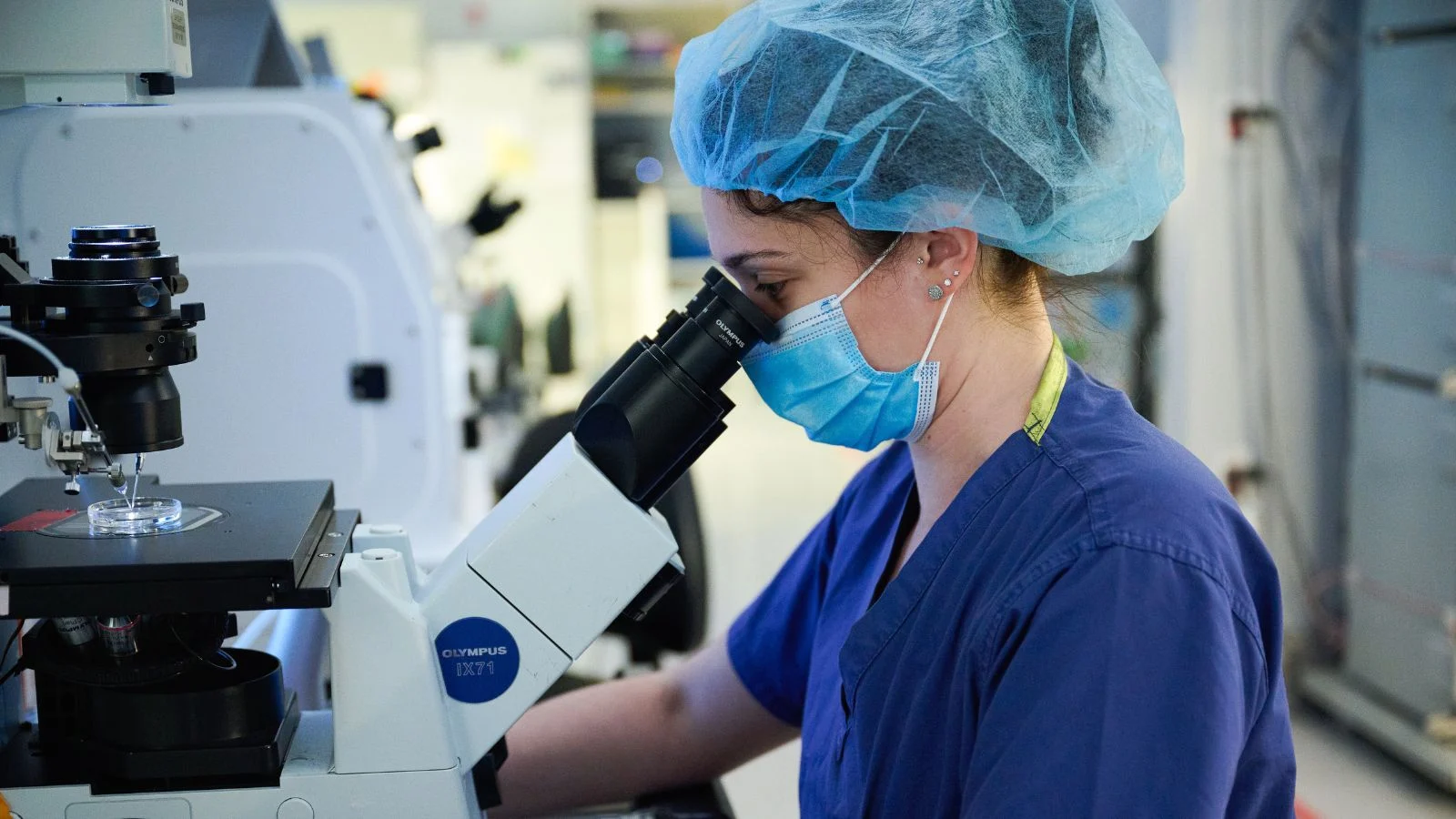
Embryology is a fascinating field of study that delves into the development and growth of embryos. It is a branch of biology that focuses on the intricate processes that occur during the early stages of life. Embryologists play a critical role in reproductive medicine and research, working closely with fertility specialists and embryology laboratories.
In this article, we will uncover 11 surprising facts about embryologists that highlight their unique contributions to the world of science and medicine. From their extensive knowledge of human reproduction to their expertise in in vitro fertilization (IVF) techniques, embryologists play a vital role in assisting couples in their journey to parenthood.
So, let’s dive into the intriguing world of embryology and explore the surprising facts that make this profession truly remarkable.
Key Takeaways:
- Embryologists are experts in human embryo development and play a vital role in fertility treatments, using cutting-edge technology and adhering to strict ethical standards to help individuals and couples achieve their dream of starting a family.
- Embryologists handle embryo assessments, cryopreservation, genetic testing, and contribute to scientific research, witnessing the creation of new life along the way. Their dedication and expertise are invaluable in the field of reproductive medicine.
Embryologists are experts in human embryo development
Embryologists specialize in the study and manipulation of human embryos. They have in-depth knowledge of the early stages of human development, from fertilization to implantation and beyond.
They play a vital role in fertility treatments
Embryologists are an integral part of the fertility treatment team. They handle procedures such as in vitro fertilization (IVF), embryo transfer, and embryo freezing. Their expertise ensures the best chances of successful outcomes for couples struggling with infertility.
Embryologists perform embryo assessments
Embryologists carefully evaluate the quality and viability of embryos. Using advanced techniques, they assess the morphology, cell division, and genetic makeup of embryos to determine their potential for successful implantation and pregnancy.
They use cutting-edge technology
Embryologists utilize state-of-the-art laboratory equipment and techniques to carry out their work. This includes microscopes, incubators, cryopreservation devices, and genetic screening technologies. Their meticulous attention to detail ensures the safety and success of procedures.
They handle embryo cryopreservation
Embryologists are responsible for freezing and storing embryos for future use. This process, known as cryopreservation, allows individuals or couples to preserve their embryos for later attempts at pregnancy, giving them more flexibility in their family planning journey.
Embryologists can help with genetic testing
Embryologists play a crucial role in preimplantation genetic testing (PGT), which involves screening embryos for genetic abnormalities. This helps couples with genetic conditions to make informed decisions regarding embryo selection and reduces the risk of passing on inherited disorders.
They must adhere to strict ethical standards
Embryologists work within ethical guidelines and regulations to ensure the responsible and respectful handling of human embryos. They prioritize the best interests of their patients and the integrity of the process throughout every step of their work.
They continuously update their knowledge and skills
Embryologists are dedicated to staying up-to-date with advancements in reproductive medicine. They attend conferences, participate in research, and undergo continuous professional development to provide the highest level of care to their patients.
They work closely with other healthcare professionals
Embryologists collaborate closely with fertility specialists, reproductive endocrinologists, and genetic counselors. Together, they form a multidisciplinary team that ensures comprehensive and personalized care for individuals and couples seeking assisted reproductive treatments.
Embryologists contribute to scientific research
Embryologists play a vital role in advancing scientific knowledge in the field of reproductive medicine. Their expertise is instrumental in conducting research studies and clinical trials that lead to improved understanding and advancements in fertility treatments.
They witness the creation of new life
Embryologists have the privilege of witnessing the incredible moment when a new life begins. Guiding the process from fertilization to the formation of an embryo is a tremendously rewarding experience that motivates and inspires embryologists in their work.
Conclusion
Embryologists play a crucial role in the field of reproductive medicine, and their work is often shrouded in mystery. However, after exploring these 11 surprising facts about embryologists, it is clear that their expertise and dedication contribute significantly to the success of reproductive treatments. From their intricate knowledge of human embryonic development to their ability to manipulate embryos in the laboratory, embryologists are the unsung heroes behind many beautiful success stories of fertility treatments. Whether it’s assisting couples in achieving their dreams of starting a family or conducting groundbreaking research, these professionals continue to push the boundaries of reproductive science. So, the next time you hear about an embryologist, remember the incredible work they do behind the scenes.
FAQs
1. What is an embryologist?
An embryologist is a highly-trained professional who specializes in the study and manipulation of embryos. They work primarily in the field of reproductive medicine and assist in various procedures like in vitro fertilization (IVF).
2. What qualifications are required to become an embryologist?
Typically, embryologists hold a Bachelor’s or Master’s degree in biology, embryology, or a related field. They often undergo additional training or certification programs to gain practical experience in assisted reproductive technologies.
3. What is the role of an embryologist in IVF?
An embryologist plays a crucial role in the IVF process. They are responsible for fertilizing eggs with sperm, culturing and monitoring embryos in the laboratory, and selecting the healthiest embryo(s) for transfer into the uterus.
4. Can embryologists determine the gender of an embryo?
Yes, through a process called preimplantation genetic testing, embryologists can determine the gender of an embryo. However, gender selection is typically only approved for medical reasons or to prevent the transmission of genetic disorders.
5. How important is precision and attention to detail for an embryologist?
Precision and attention to detail are paramount for an embryologist. They work with delicate embryos, requiring meticulous techniques and adherence to strict protocols to ensure the best chances of successful implantation and healthy pregnancy.
6. Do embryologists contribute to scientific research?
Yes, embryologists are often involved in scientific research to advance the field of reproductive medicine. They contribute to studies on embryo development, genetic screening techniques, and evolving technologies in assisted reproduction.
7. Can embryologists work in other areas besides fertility clinics?
Yes, embryologists can work in research institutions, academic settings, and pharmaceutical companies. They may contribute to embryonic stem cell research, animal reproduction studies, or genetic engineering.
8. How has technology advanced the field of embryology?
Technological advancements have revolutionized embryology. Techniques like intracytoplasmic sperm injection (ICSI), time-lapse imaging, and genetic screening have significantly improved success rates in assisted reproduction and provided valuable insights into early embryo development.
9. Are embryologists involved in counseling patients?
While embryologists primarily focus on the laboratory aspects of reproductive medicine, they may provide patients with information about procedures, embryo development, and answer basic questions. However, more complex counseling is usually performed by fertility specialists or counselors.
10. Is there a global standard for embryology practices?
Yes, organizations such as the International Society for Embryology, Reproductive Medicine and Genetics (ISERMG) and the European Society of Human Reproduction and Embryology (ESHRE) have established guidelines and standards to ensure ethical and safe practices in embryology.
11. What is the future of embryology?
The future of embryology holds great promise. With advancements in technologies like gene editing, artificial intelligence, and stem cell research, we can expect further breakthroughs in infertility treatments, genetic screening, and our understanding of human development.
Embryologists' work fascinates, from unraveling genetics mysteries to developing reproductive health treatments. Their expertise enables assisted reproduction techniques, giving hope to aspiring parents. Explore more captivating facts about embryologists' vital role in creating life.
Was this page helpful?
Our commitment to delivering trustworthy and engaging content is at the heart of what we do. Each fact on our site is contributed by real users like you, bringing a wealth of diverse insights and information. To ensure the highest standards of accuracy and reliability, our dedicated editors meticulously review each submission. This process guarantees that the facts we share are not only fascinating but also credible. Trust in our commitment to quality and authenticity as you explore and learn with us.


